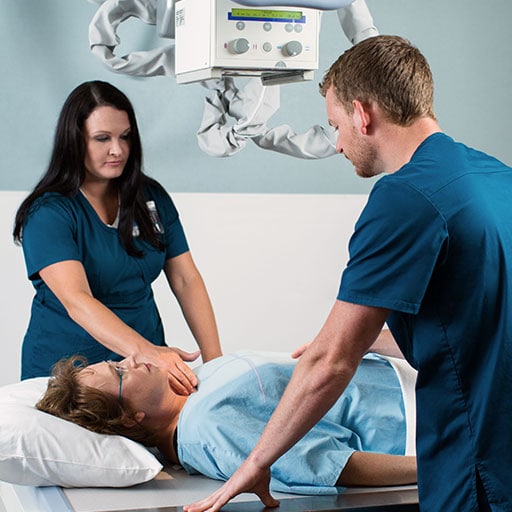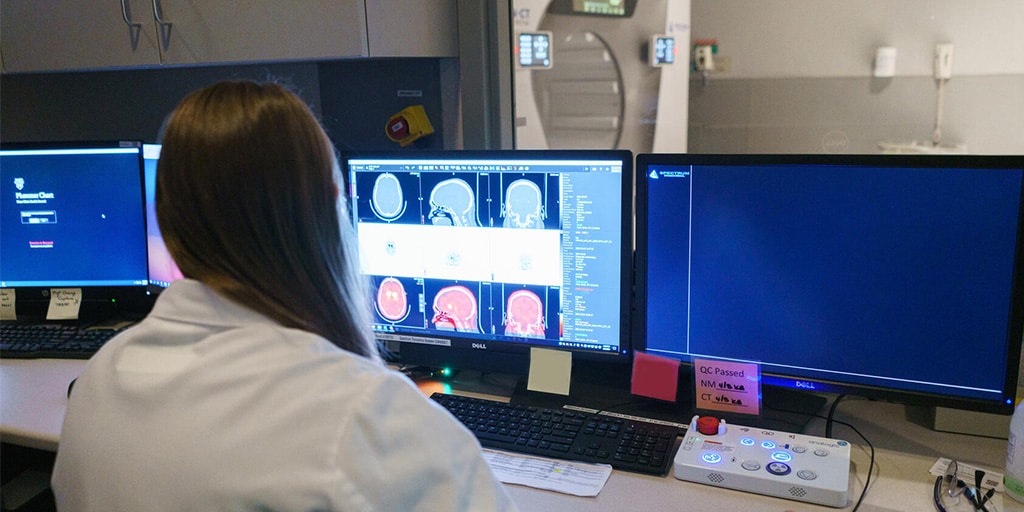
What does a nuclear medicine technologist do?
Nuclear medicine technologists perform tests for diagnosis and medical research. They prepare and give small doses of radioactive drugs (radiopharmaceuticals) to patients, then use high-level imaging equipment to record images of the radioactive material in the body. Physicians interpret the images to study and diagnose an infection or disorder. Nuclear medicine technologists also give doses of radiation to patients internally to treat medical conditions.
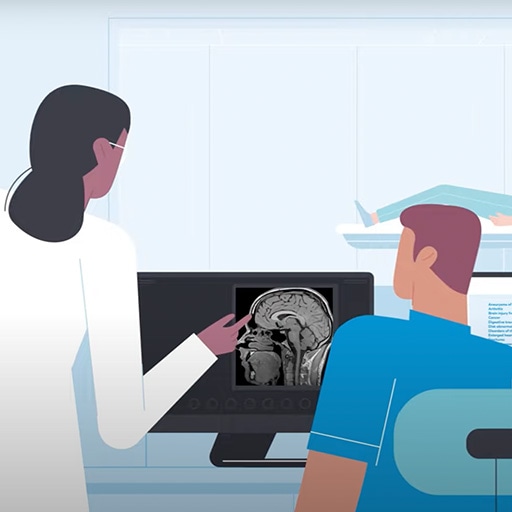
1:42
Video: Behind the scenes: Medical imaging
Scope of practice
Nuclear medicine technologists work with doctors, medical physicists, nuclear pharmacists, computer specialists, nurses, and administrative staff.
Common tasks and duties of the role include:
- Preparing and administering radioactive drugs
- Capturing images that a physician will use to diagnose an infection or disorder
- Limiting radiation exposure to the patient and staff members administering the tests
- Analyzing specimens in the lab
- Setting up appointments
- Explaining procedures to patients
Work environment
Nuclear medicine technologists are typically employed by hospitals, universities, medical clinics, imaging clinics, diagnostic labs, and research centers. They typically work a 40-hour week, which may include evening or weekend hours. They may also be required to have some on-call responsibilities.
Becoming a nuclear medicine technologist
Individuals interested in becoming a nuclear medicine technologist, should prepare for their future career by taking high school courses heavy in math and science like algebra, biology, chemistry, geometry, statistics, and physics.
Higher education requirements
While the pathway to becoming a nuclear medicine technologist may look different for each individual, most employers require the following:
- Completion of an associate degree or bachelor's degree
- Completion of a certificate program that specializes in nuclear medicine technology
In most circumstances, the difference between having an associate degree or a bachelor's degree will determine which professional certifications for which you can apply and there may be some difference in on-the-job responsibilities.
Certification process
Many employers require certification or licensure to work as a nuclear medicine technologist. Certification is available for individuals who have completed a nuclear medicine program and passed the certifying exam from a certification board like the Nuclear Medicine Technology Certification Board or the American Registry of Radiologic Technologists.
Career opportunities and outlook
Nuclear medicine technologists can expect a median annual salary of $78,760.
Nuclear medicine technologists are in demand throughout the U.S. and career opportunities are good. The Bureau of Labor Statistics expects employment of nuclear medicine technologists will continue to grow at an average pace. With the growth of the middle-aged and older adult populations, demand will increase for diagnostic procedures, including nuclear medicine testing. In addition, technological advancements will likely increase the diagnostic use of nuclear medicine.
With additional training and experience, a nuclear medicine technologist could become a lead technologist or a research technologist. They could also move into a management or education role. Technologists can also earn specialty certificates to increase opportunities for advancement such as in positron emission tomography.
By the numbers
median annual salary
years of higher education
job growth projected from 2020-2030
Nuclear medicine technologist program at Mayo Clinic
Mayo Clinic offers a one-year Nuclear Medicine Technology Program in Rochester, Minnesota, to prepare students for a career as a nuclear medicine technologist.
Browse similar careers
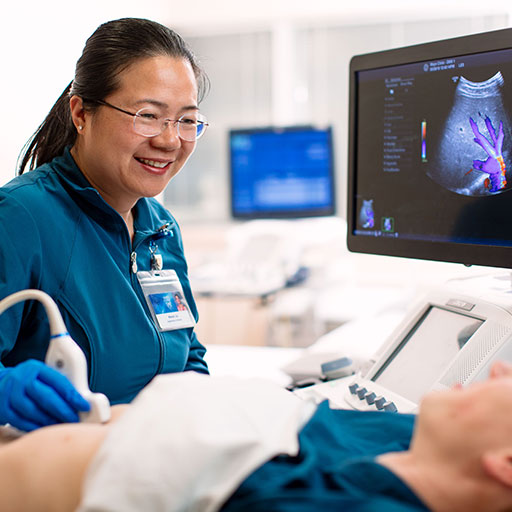
Diagnostic medical sonographer
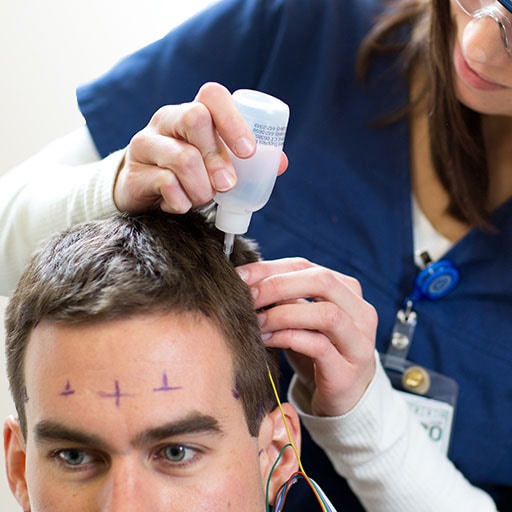
Neurodiagnostic technologist
